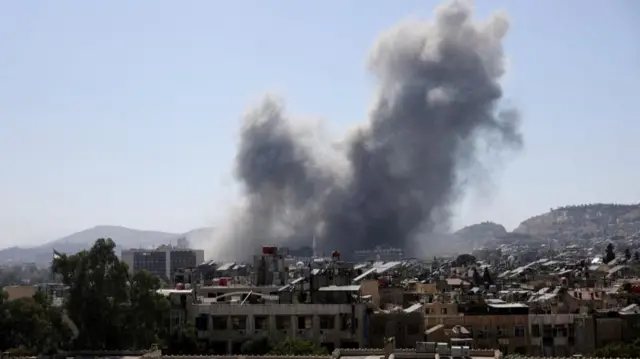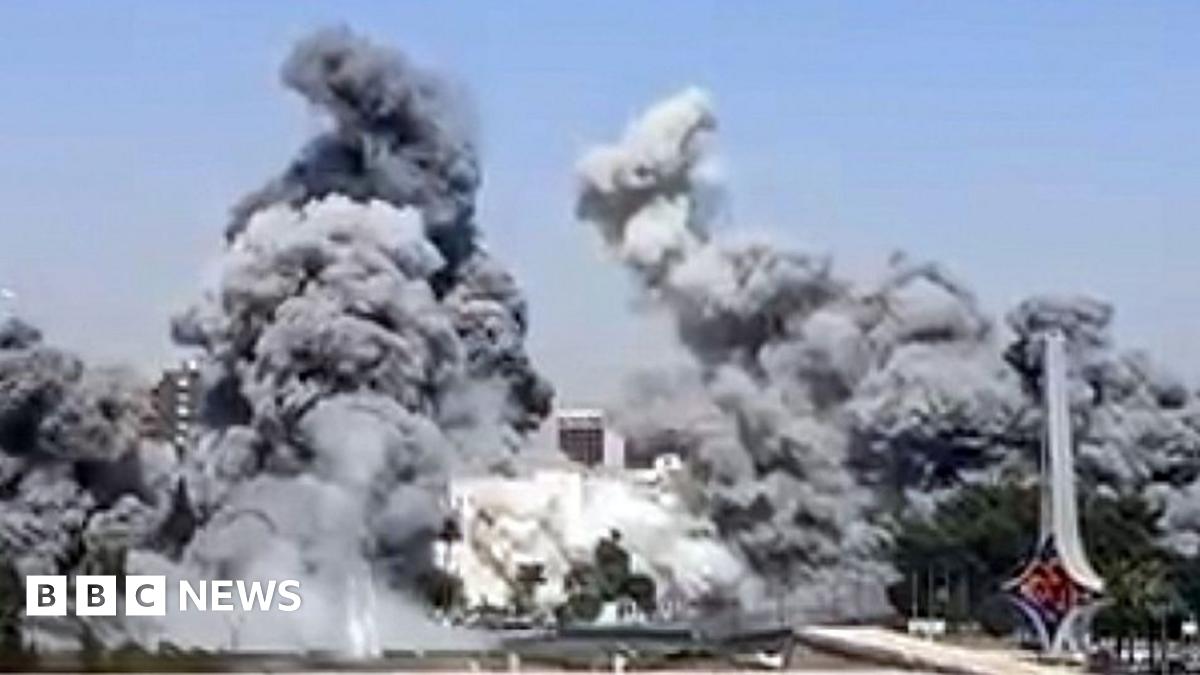
15:39 BST
 Lina Sinjab
Lina Sinjab
Middle East correspondent, reporting from Beirut
 Image source, Reuters
Image source, Reuters
While Israel’s strikes in Syria may appear to be a show of strength, they reflect more than simple muscle-flexing.
Syria’s post-Assad government is still in its infancy – its army and security forces are weak, fragmented, and struggling to assert control.
In the immediate aftermath of former dictator Bashar al-Assad’s fall in December, Israel launched a sweeping wave of air strikes, targeting more than 400 military sites in just 48 hours.
The intent was clear: to prevent any rapid militarisation that could threaten Israeli security, particularly near its northern border.
Although the new Syrian leadership has signalled it has no appetite for regional war – and quiet, US-backed negotiations with Israel may be under way. Israel sees a red line in the presence of what it regards as Islamist-aligned forces near Druze communities and the Israeli buffer zone.
The strikes are as much a deterrent as they are a warning.
But the campaign is not without consequence. It’s stirring anger on the Syrian street and even dividing opinion among Druze, some of whom reject any association with Israel.
Ultimately, these strikes are as political as they are military, aimed at shaping the emerging post-Assad order before it hardens.
